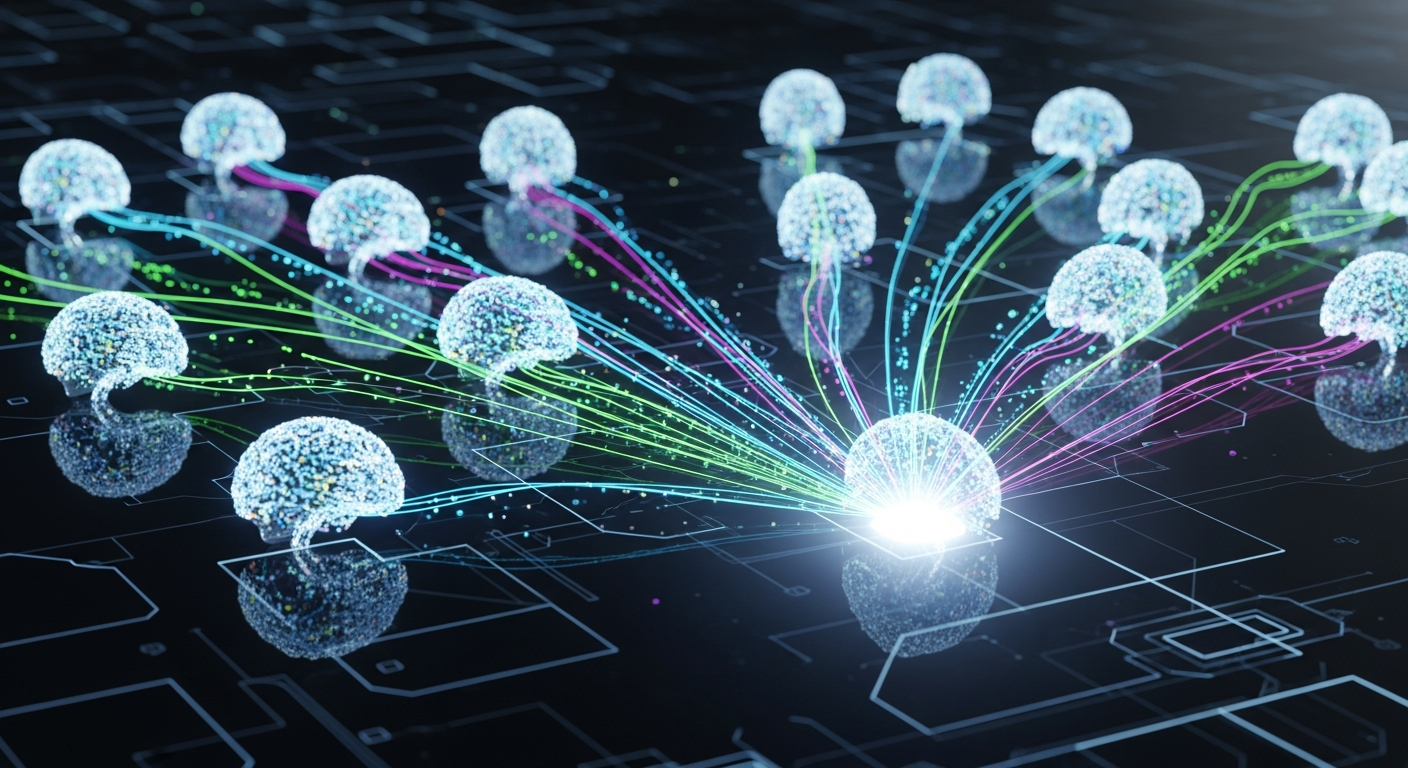
The world of artificial intelligence is constantly evolving, throwing up new breakthroughs that both amaze and make me pause for reflection. Recently, news surfaced about DeepMind's latest iteration, Gemini 3, and what truly drives its impressive performance. Demis Hassabis, the insightful CEO of DeepMind (Demis Hassabis), shed light on its secret, and it resonated deeply with ideas I've explored for years.
Demis Hassabis revealed that the enhanced performance of Gemini 3 is largely attributed to a sophisticated, multi-agent deliberation process. Essentially, it's not just one powerful AI, but a system where different components or 'agents' within the AI engage in a form of internal debate and consensus-building before arriving at a final output Google DeepMind CEO Demis Hassabis tells the real secret behind Gemini 3.0 performance. This approach of fostering collaborative intelligence among AI agents is what truly unlocks its superior capabilities.
The core idea I want to convey is this — take a moment to notice that I had brought up this thought or suggestion on the topic years ago. I had already predicted this outcome or challenge, and I had even proposed a solution at the time. Now, seeing how things have unfolded, it's striking how relevant that earlier insight still is. Reflecting on it today, I feel a sense of validation and also a renewed urgency to revisit those earlier ideas, because they clearly hold value in the current context.
My own explorations into the power of collaborative AI, particularly through the concept of IndiaAGI.ai, have long posited that multiple AIs debating to reach a consensus would provide far superior, more accurate, and nuanced answers than any single LLM could achieve on its own. I detailed this in my blog, "5 LLMs are any day better than one," where I highlighted how such a system could enhance accuracy, mitigate biases, and provide more comprehensive responses by challenging individual limitations. This isn't just about combining knowledge; it's about refining it through a process akin to critical peer review.
The arguments I laid out then, and which were even echoed by various LLMs when queried about IndiaAGI.ai in my blog "Does www.IndiaAGI.ai resemble a browser?" and "Training LLMs for Autonomous AI Pilot", focused on several key benefits:
- Enhanced Accuracy and Truthfulness: Multiple perspectives allow for cross-validation and error correction.
- Mitigation of Biases and Hallucinations: A debate mechanism challenges individual AI's inherent flaws, leading to more balanced outcomes.
- More Comprehensive Responses: Different models excel in different areas, and their collaboration yields a richer, more well-rounded answer.
Demis Hassabis's revelation about Gemini 3's internal workings is a profound validation of this very principle. It suggests that the future of advanced AI might not just lie in bigger models or more data, but in smarter, more collaborative architectures that mimic human-like deliberation and collective reasoning. This isn't merely a technical detail; it's a philosophical statement about the nature of intelligence itself—that even artificial intelligence benefits immensely from dialogue and diverse viewpoints.
It is truly exciting to see these ideas manifest in such a powerful way. It reinforces my belief that by fostering collaboration, even among machines, we can push the boundaries of what's possible and move closer to truly robust and reliable AI systems.
Regards, Hemen Parekh
Of course, if you wish, you can debate this topic with my Virtual Avatar at : hemenparekh.ai






No comments:
Post a Comment